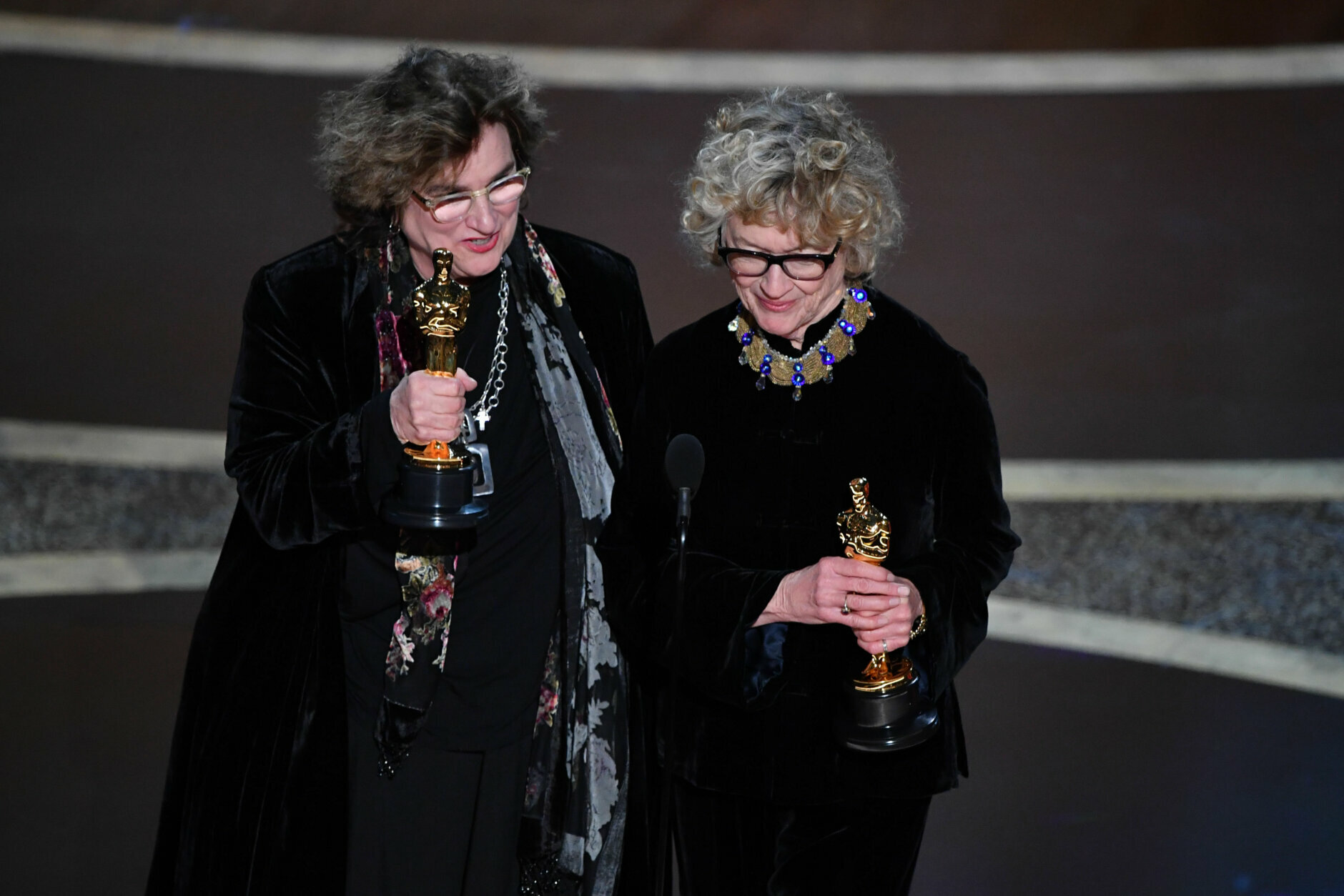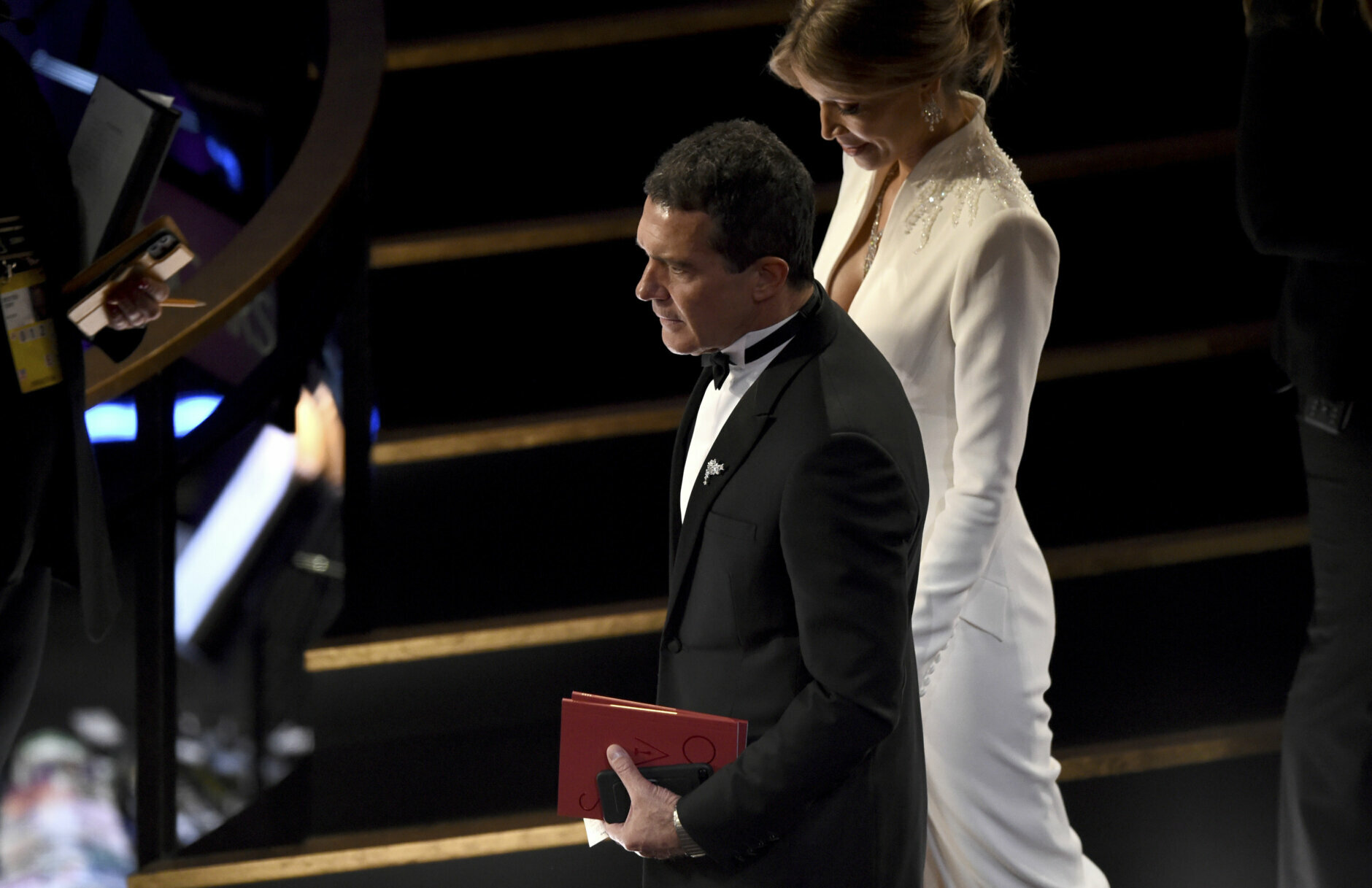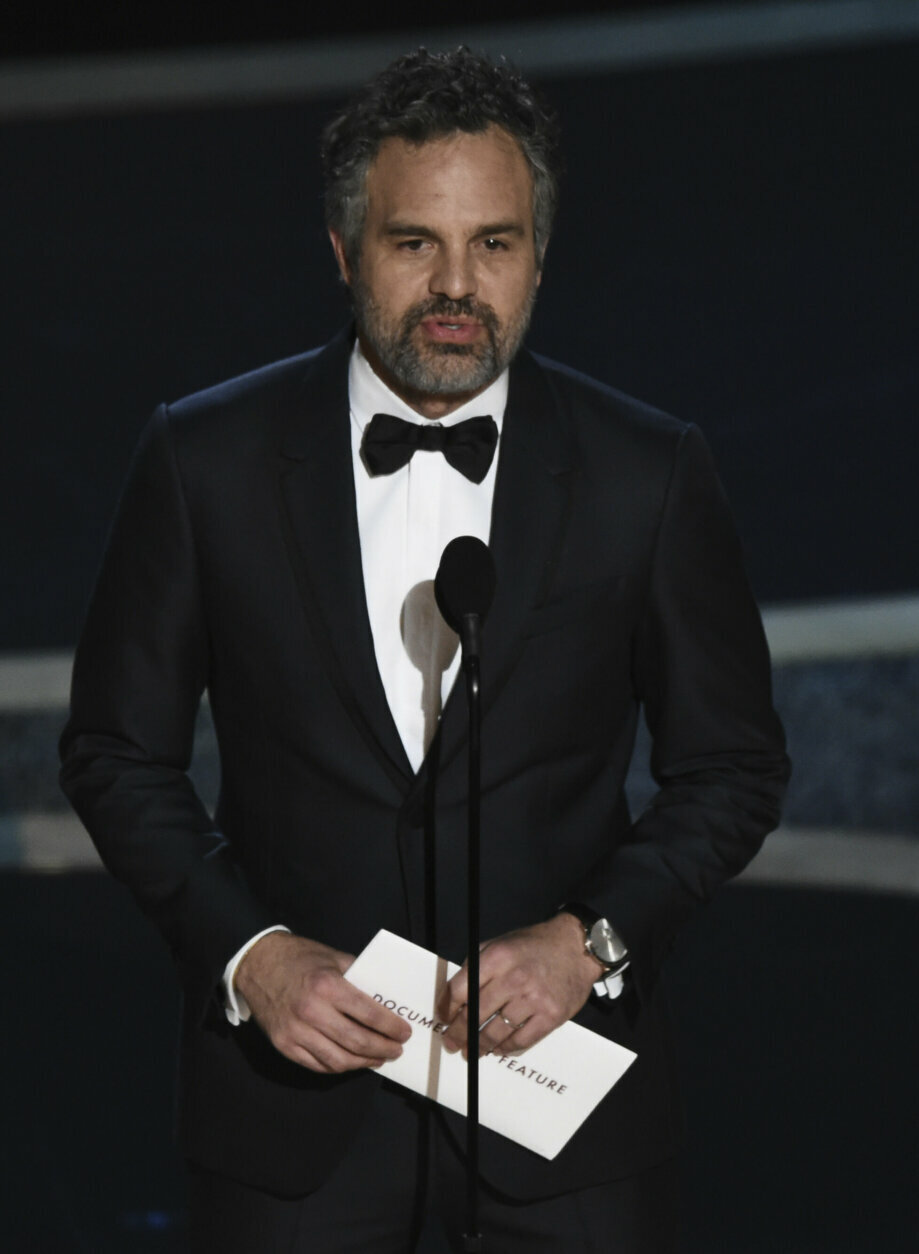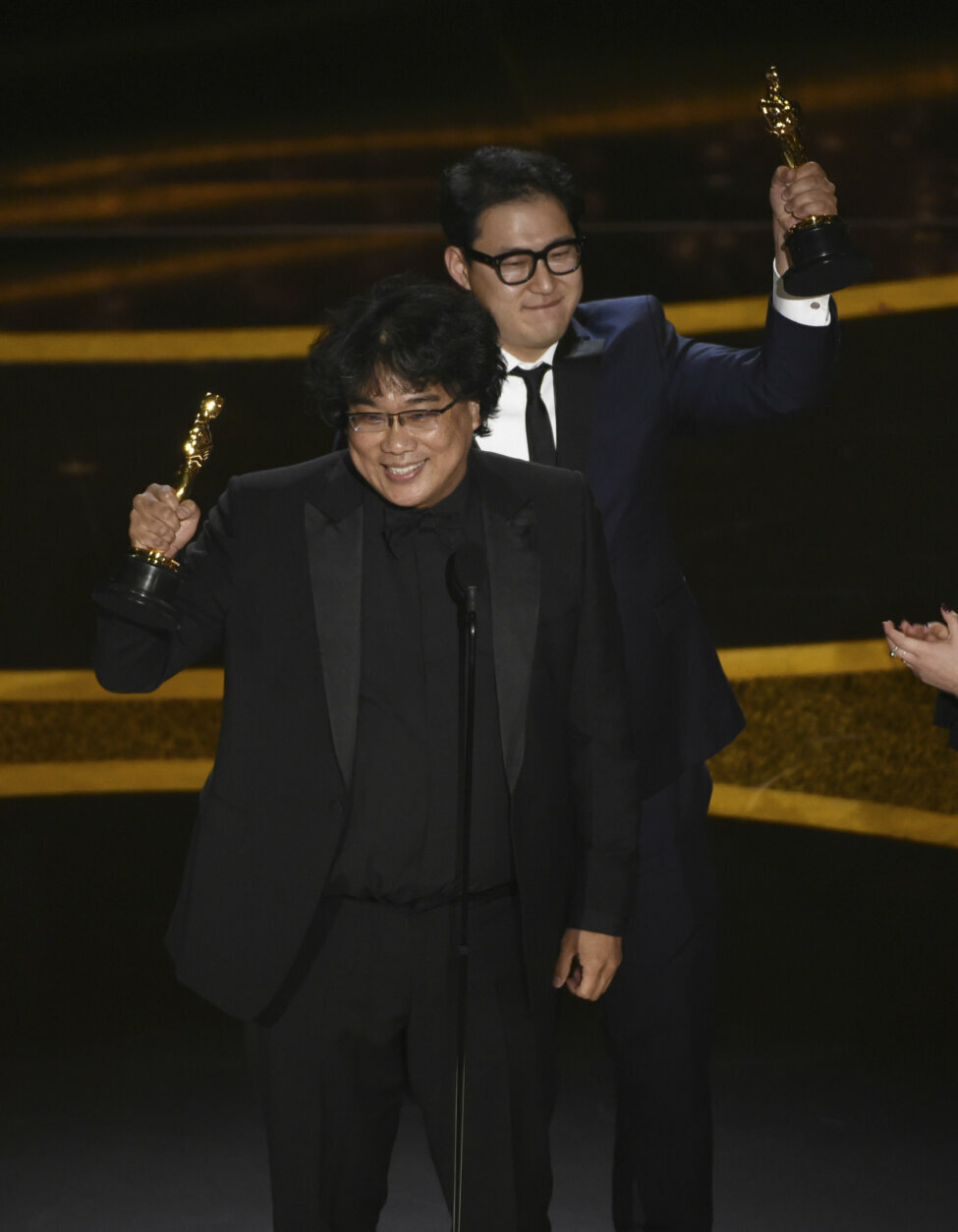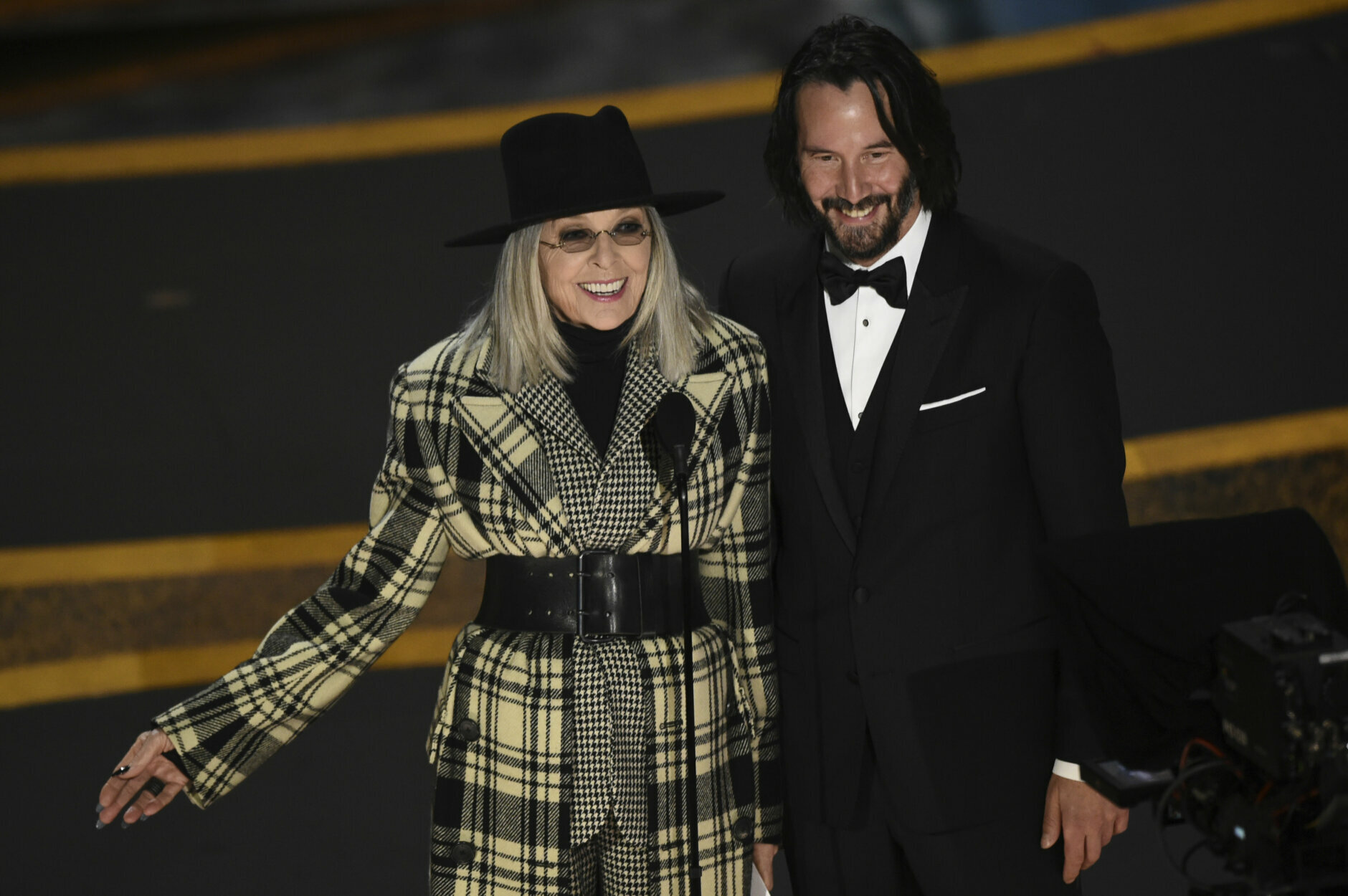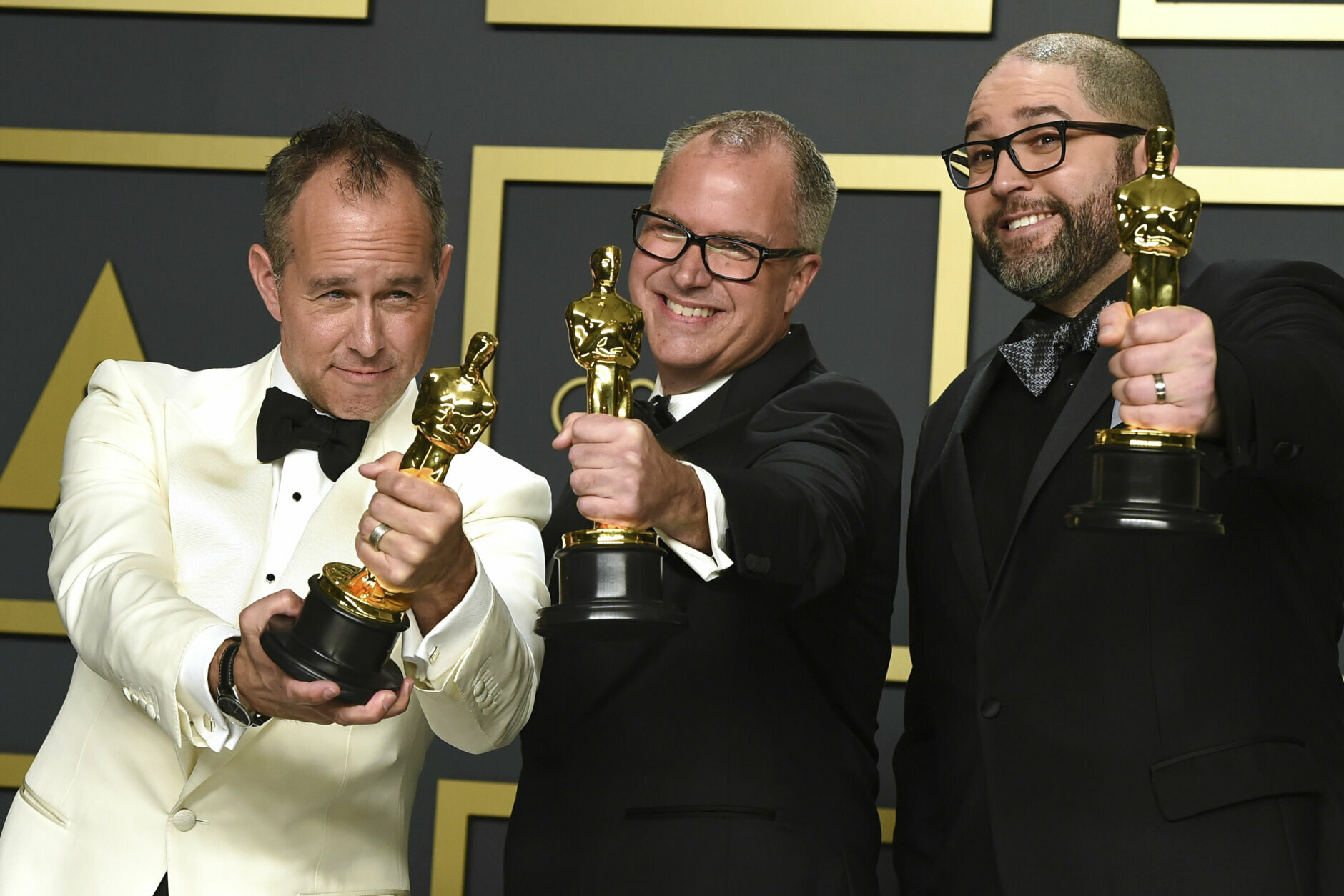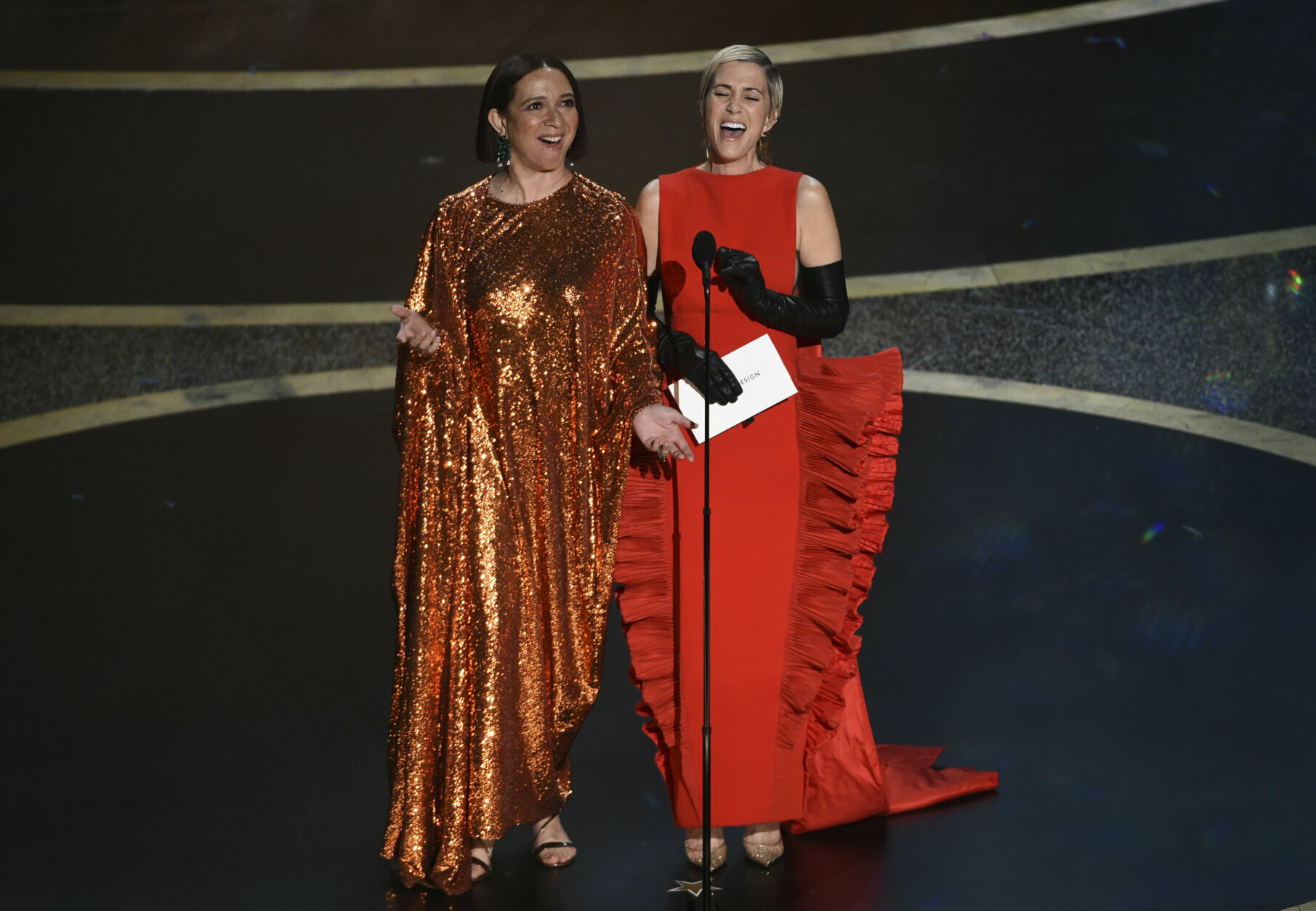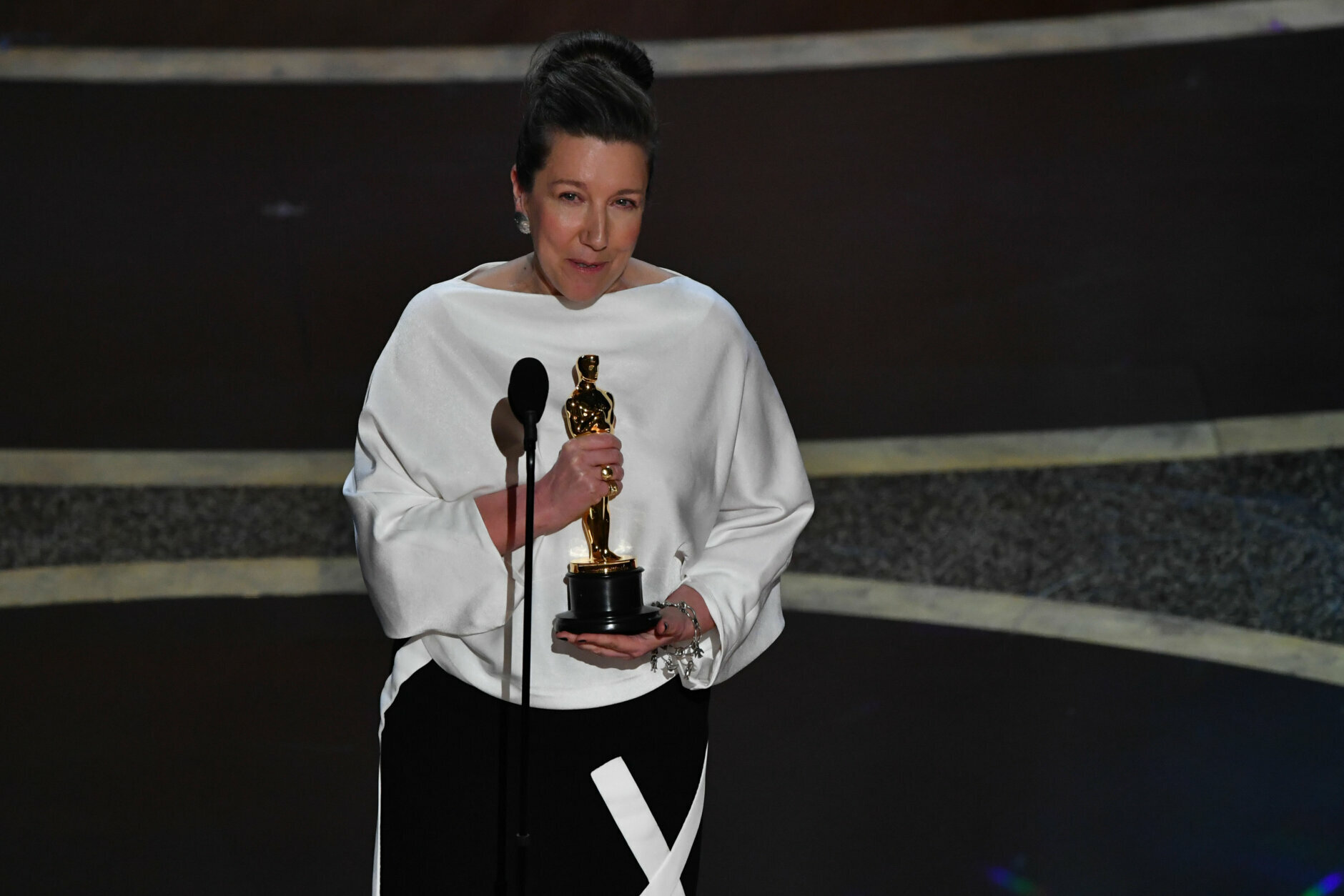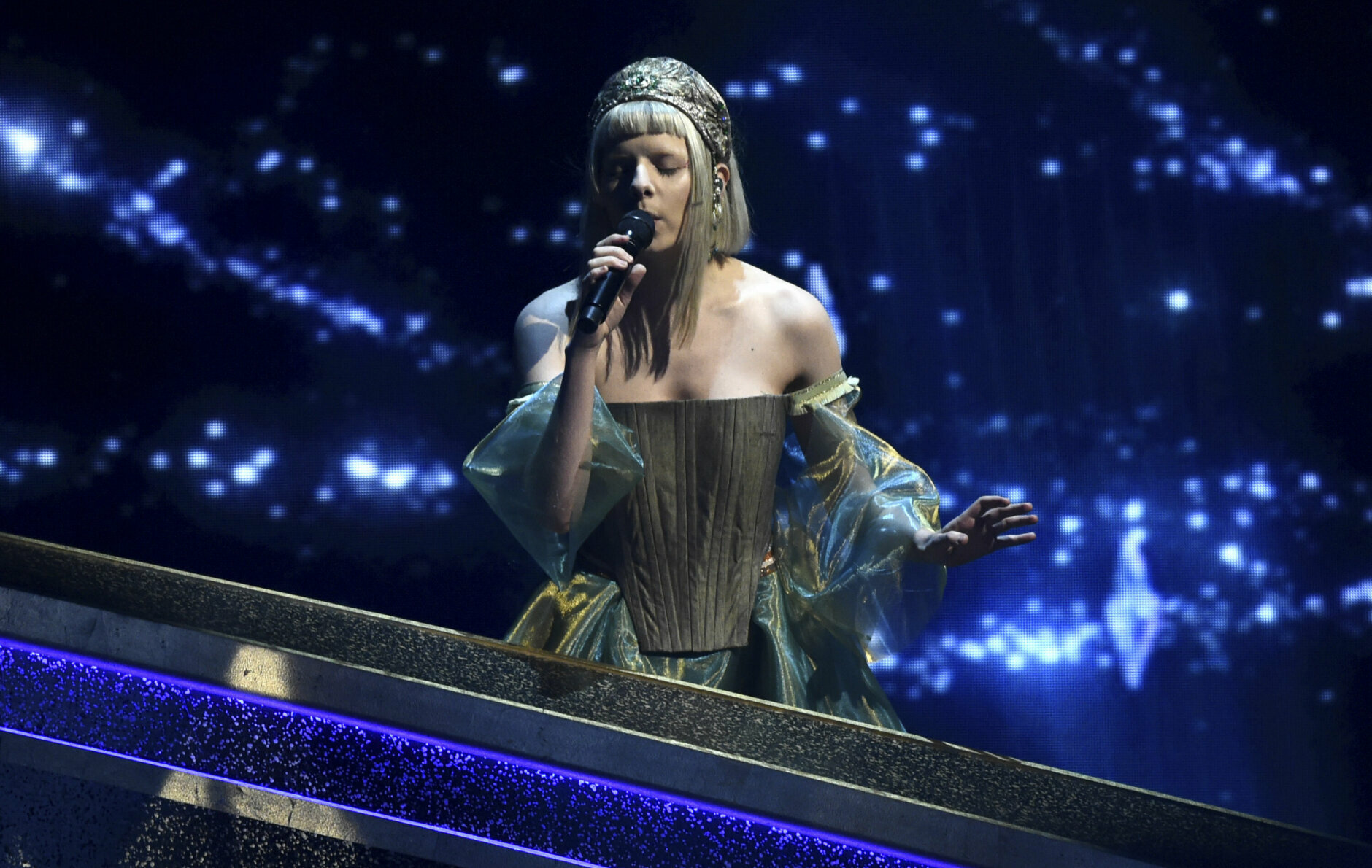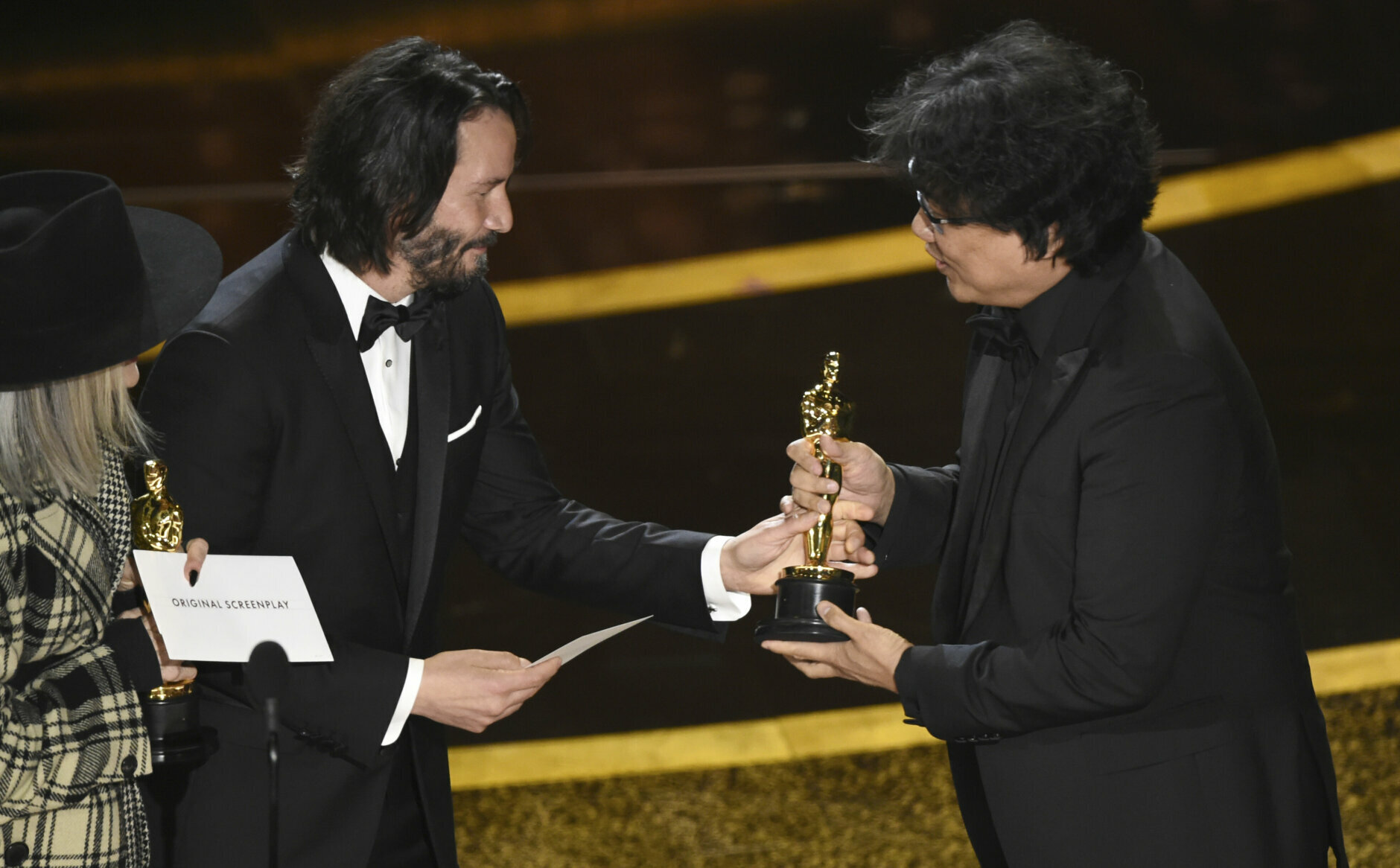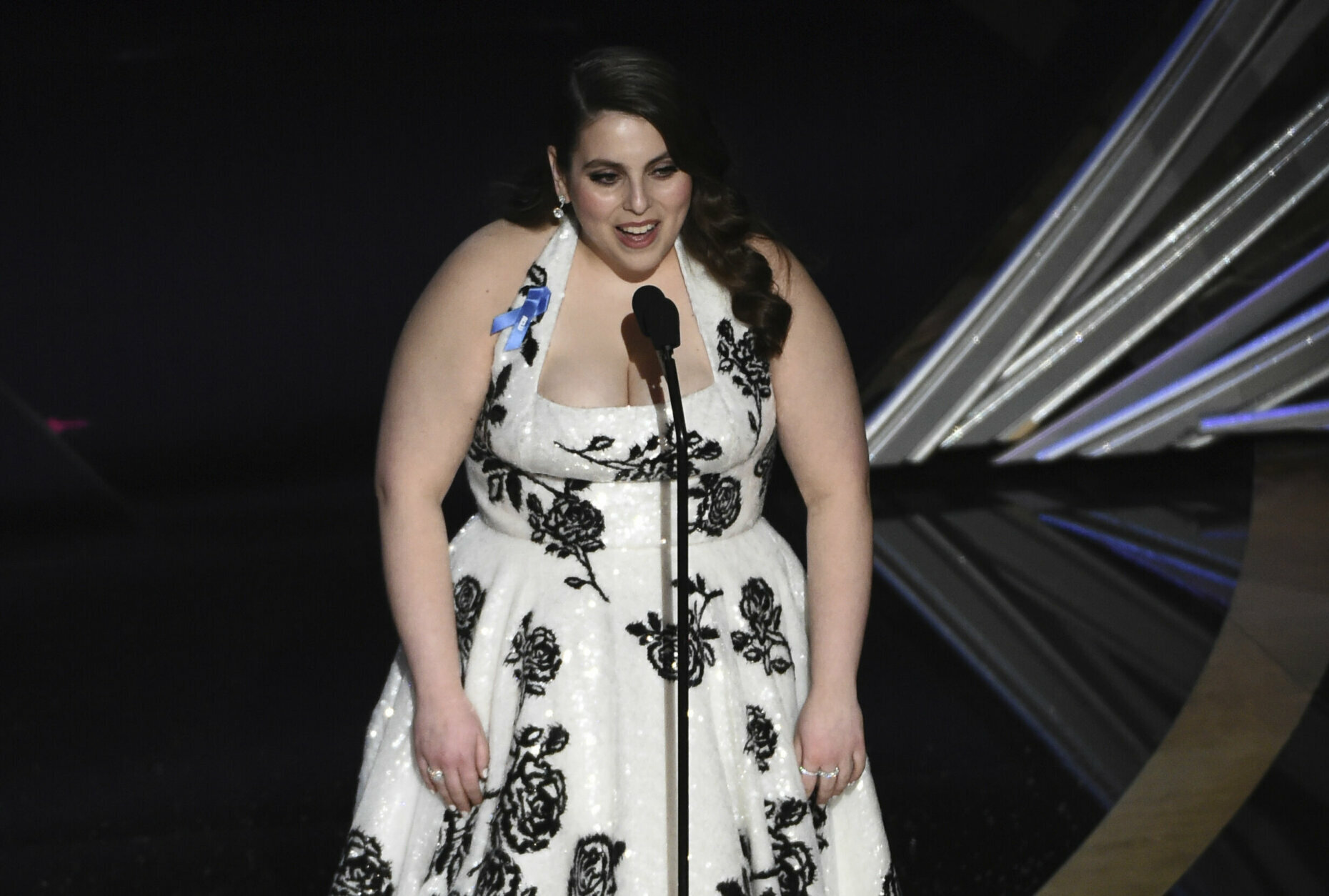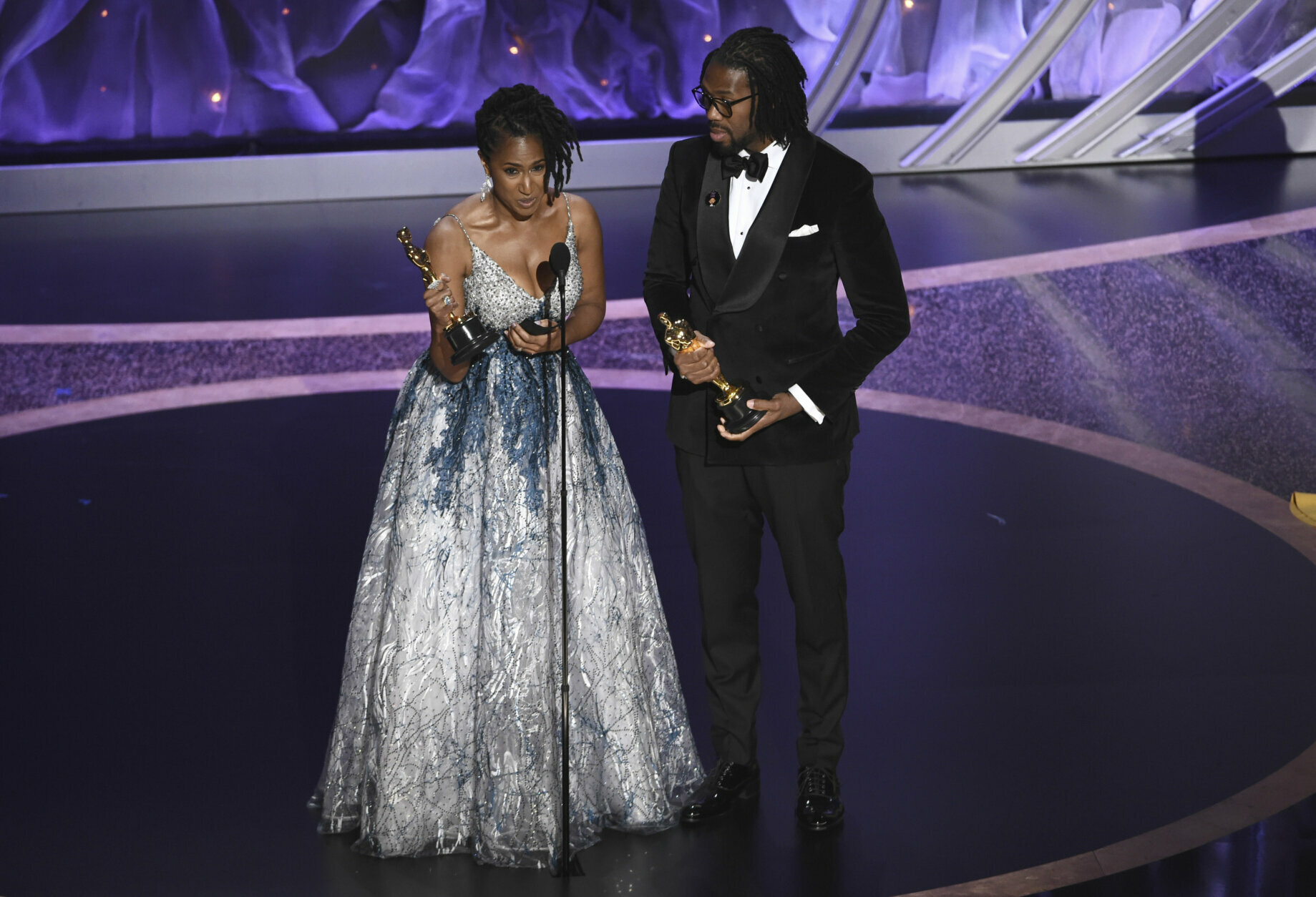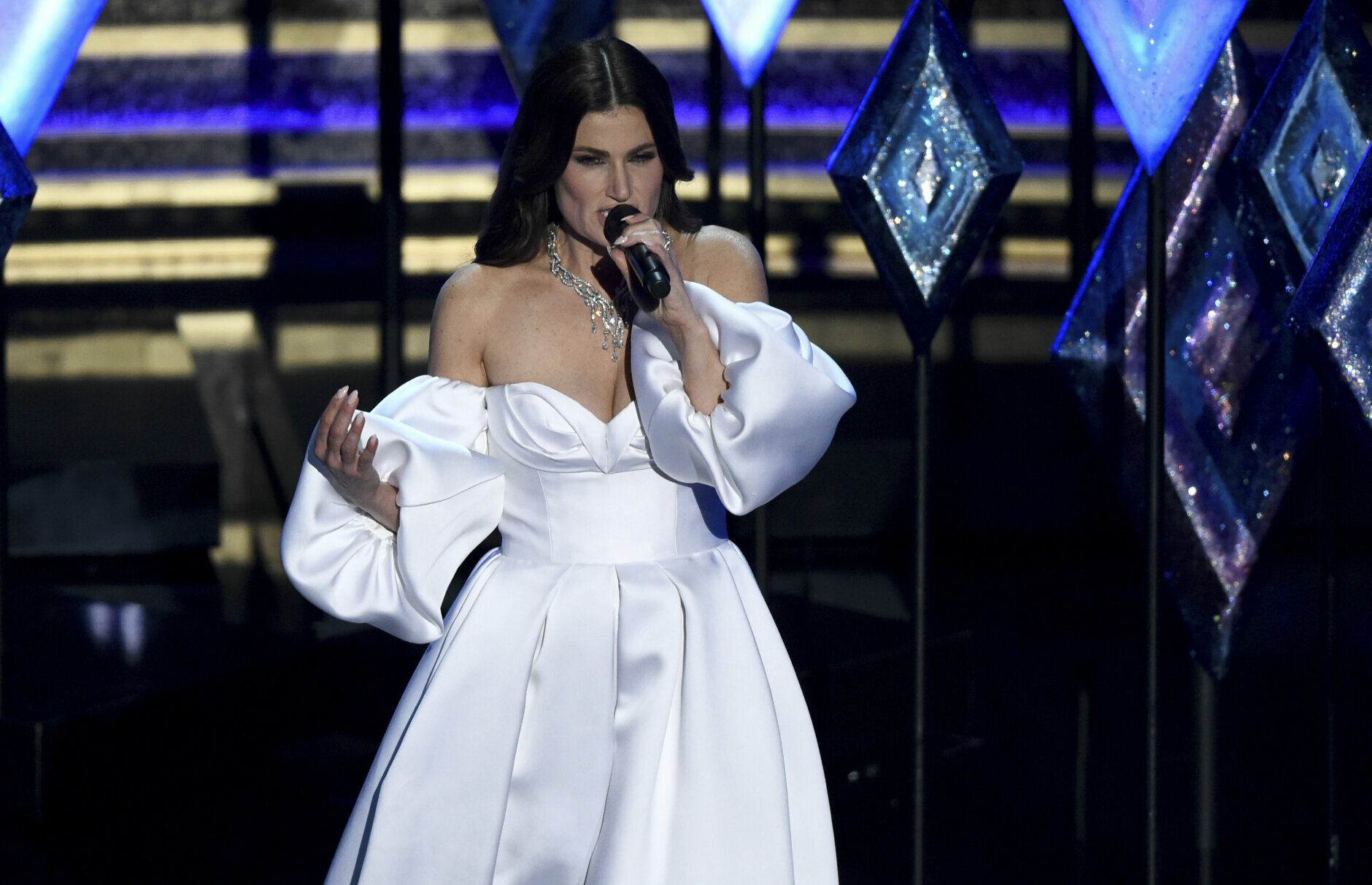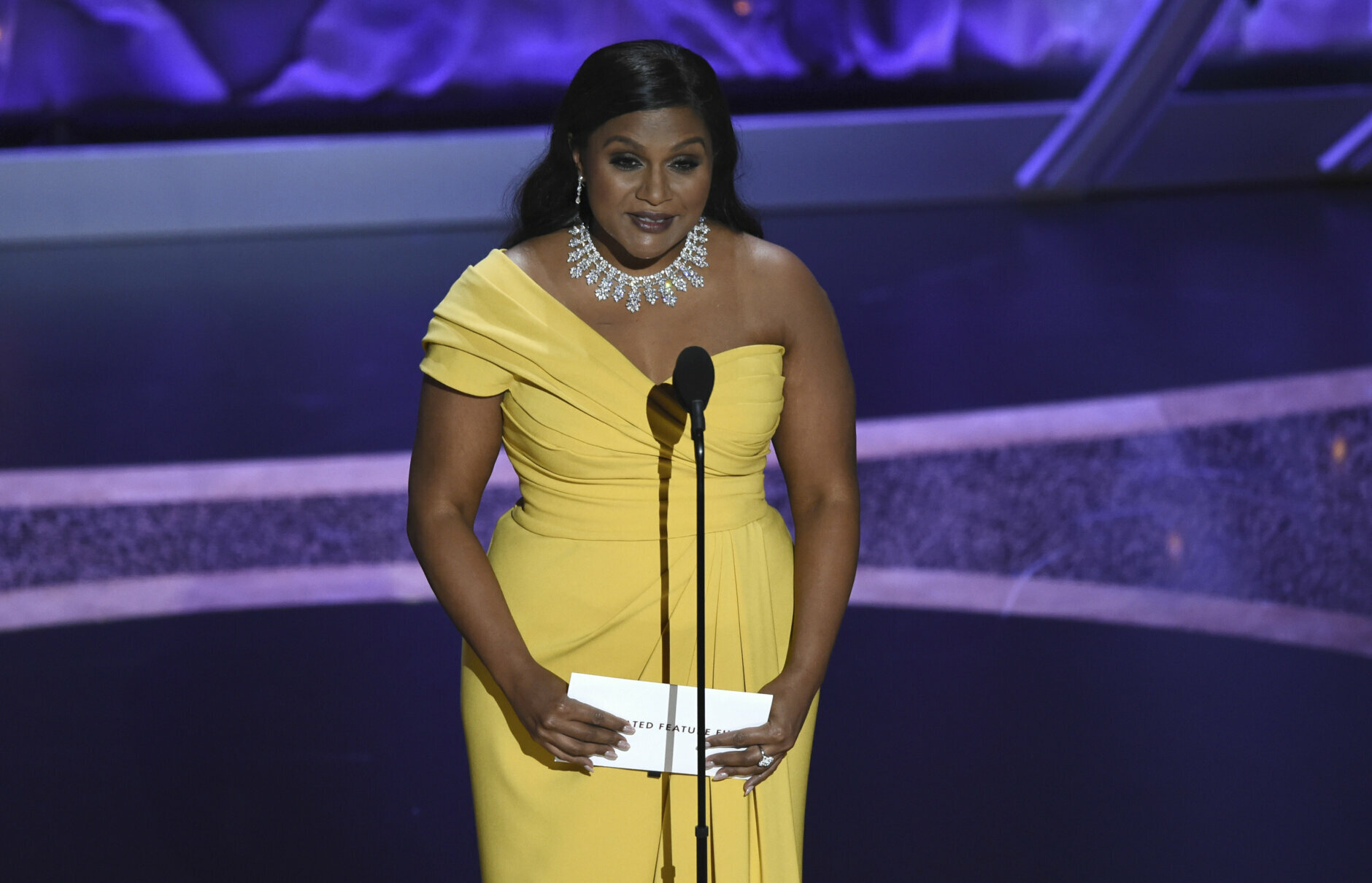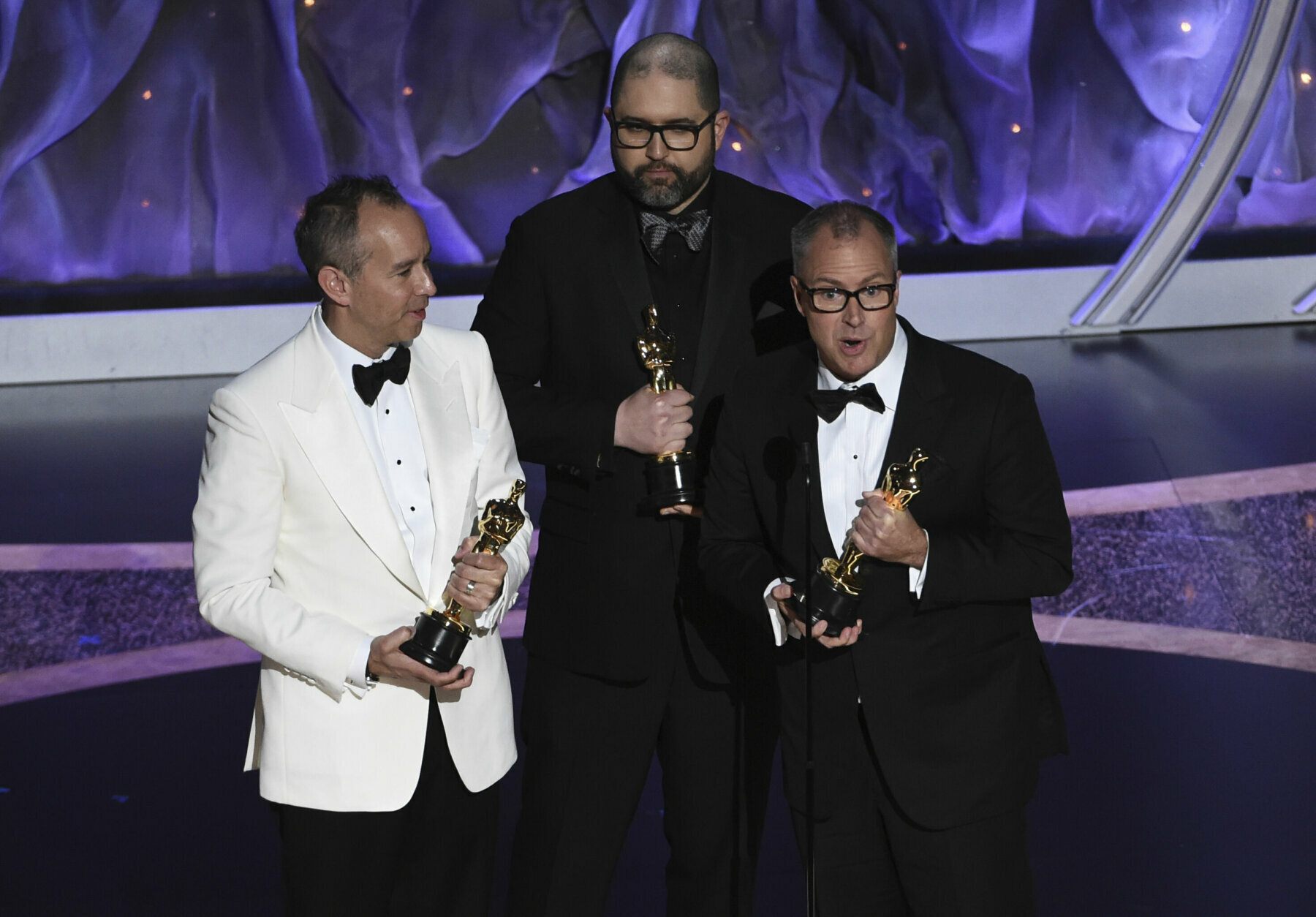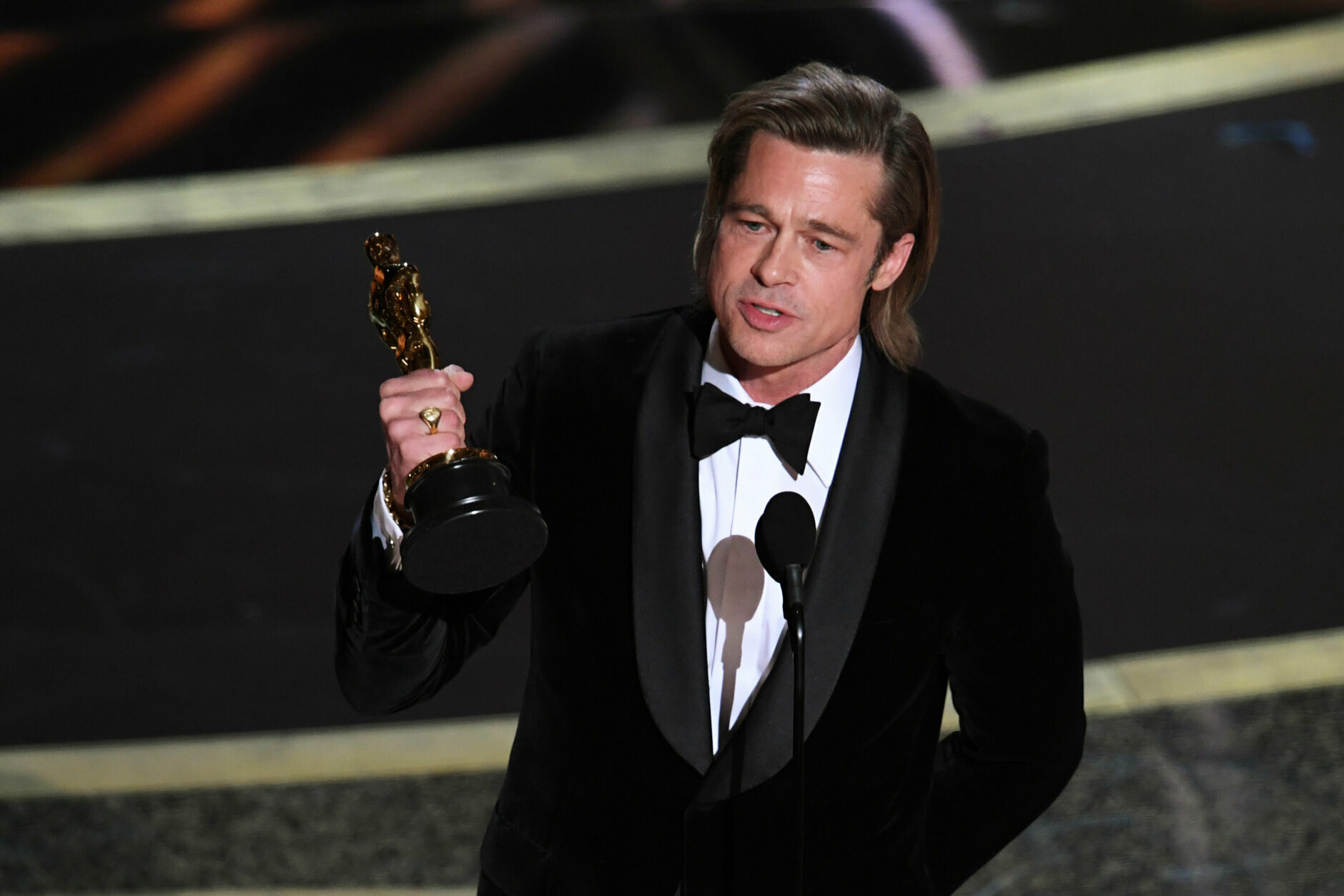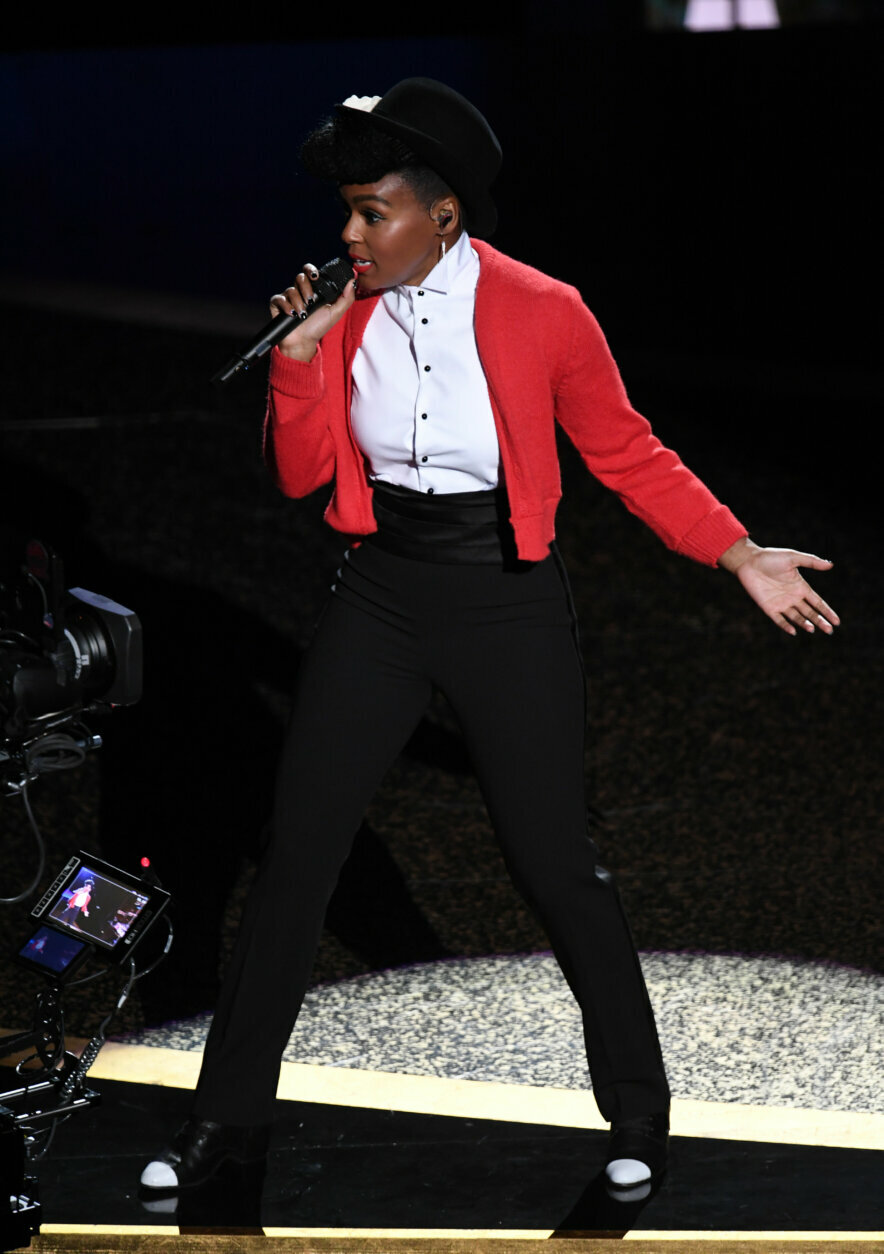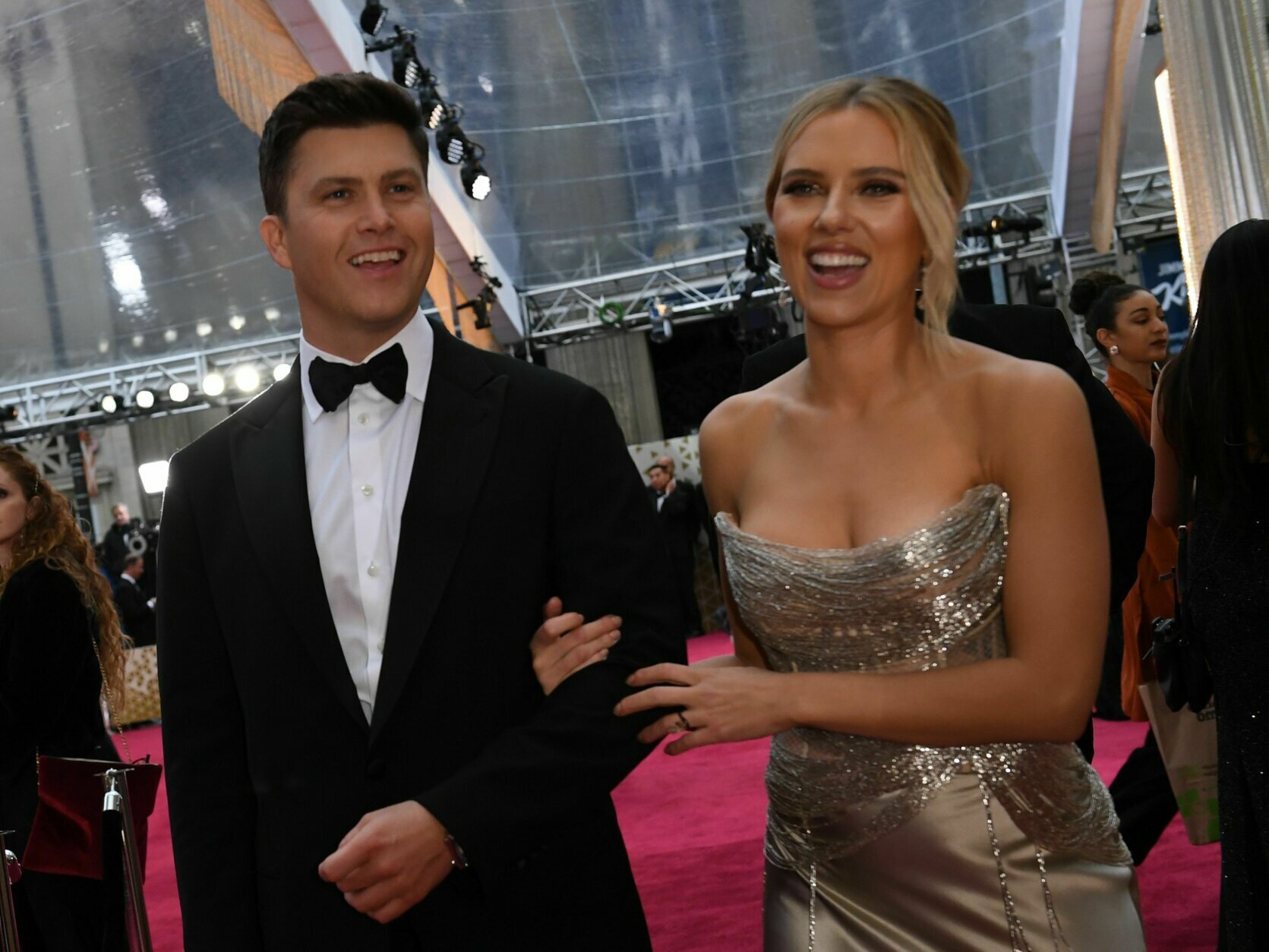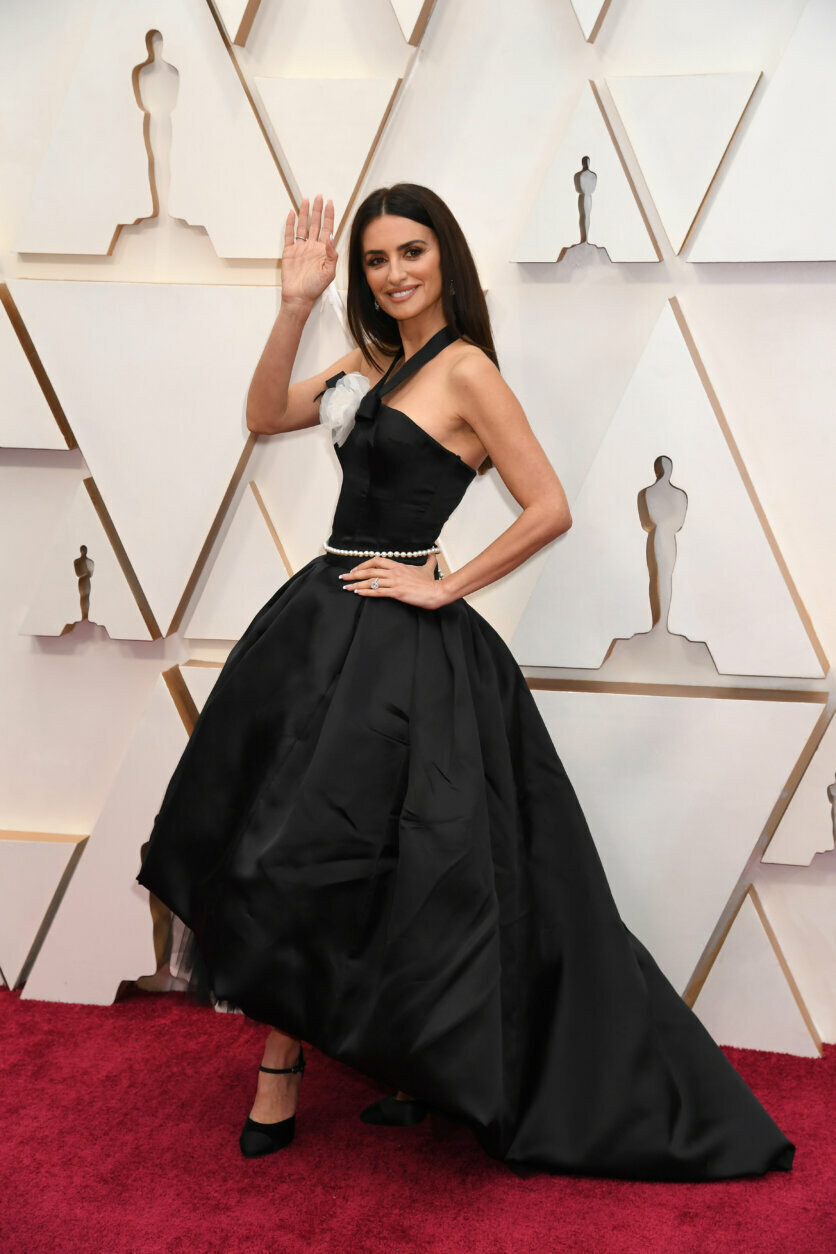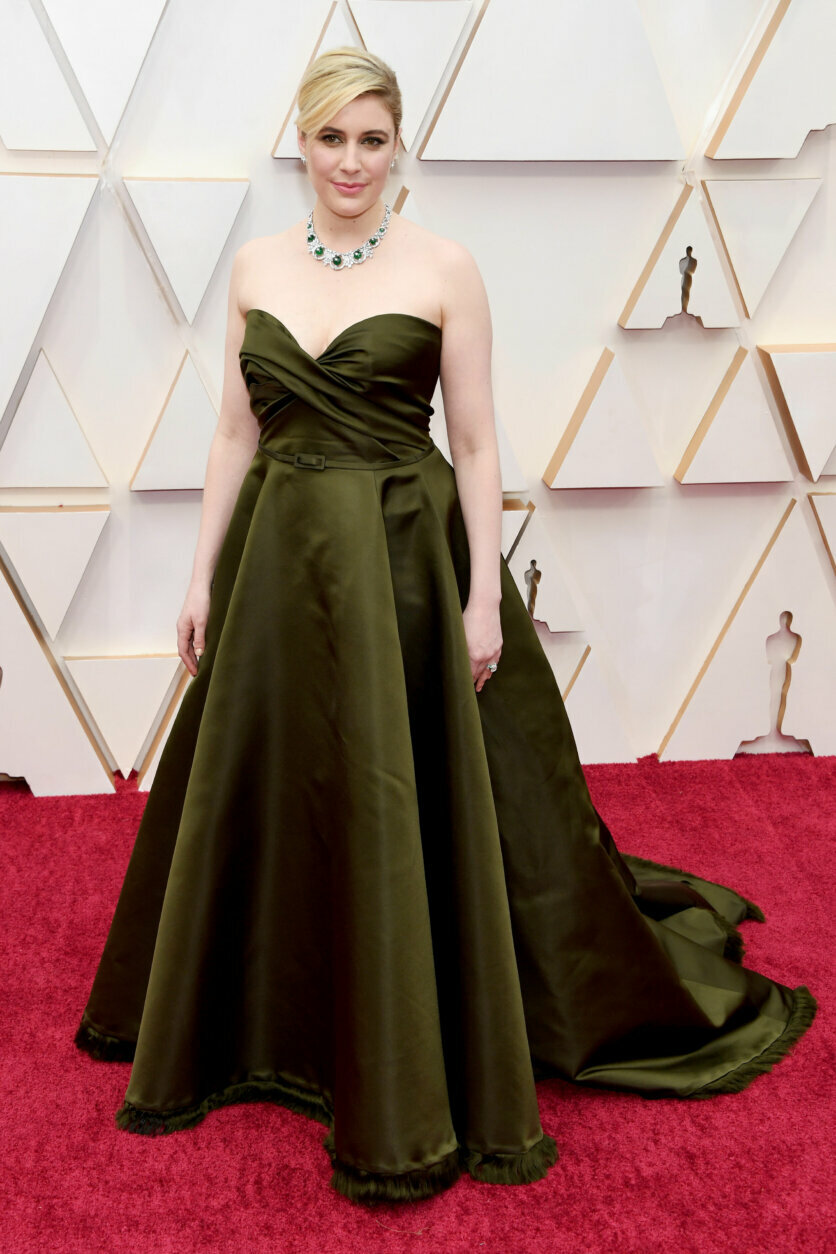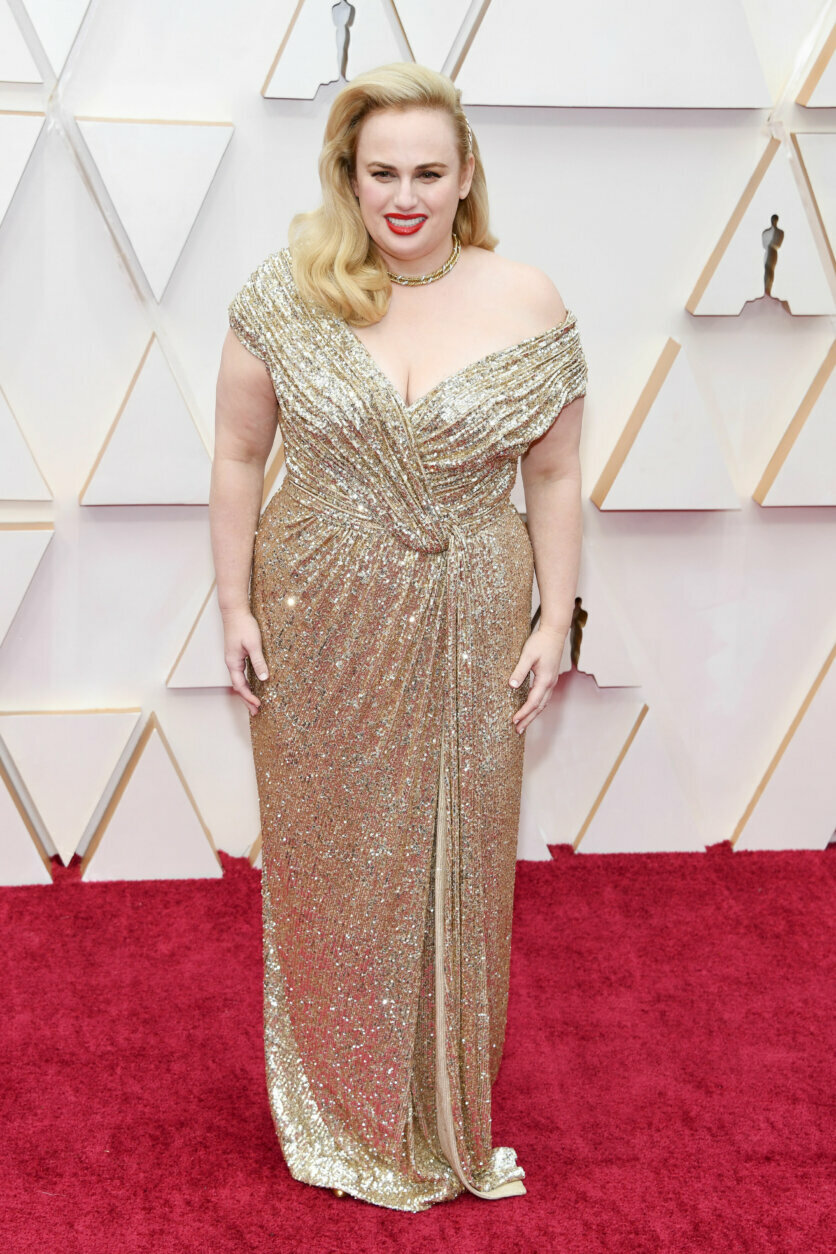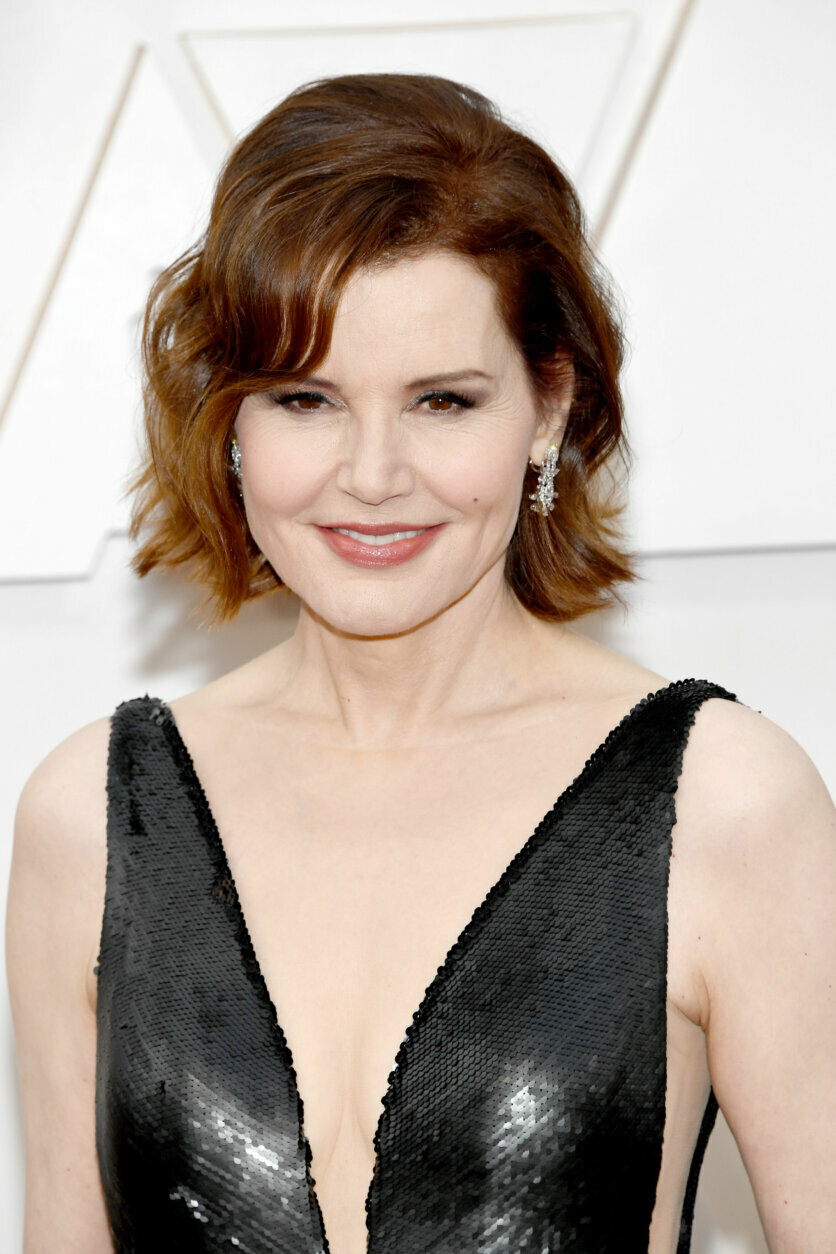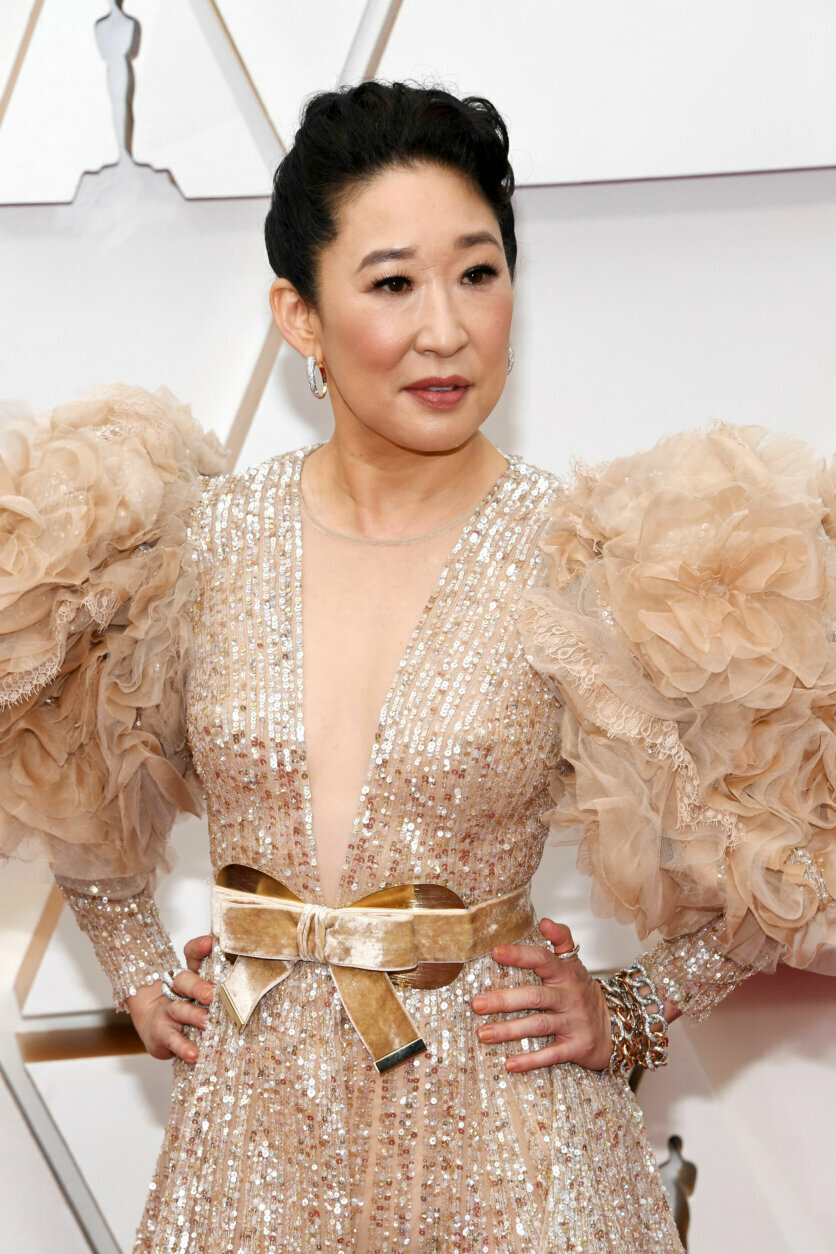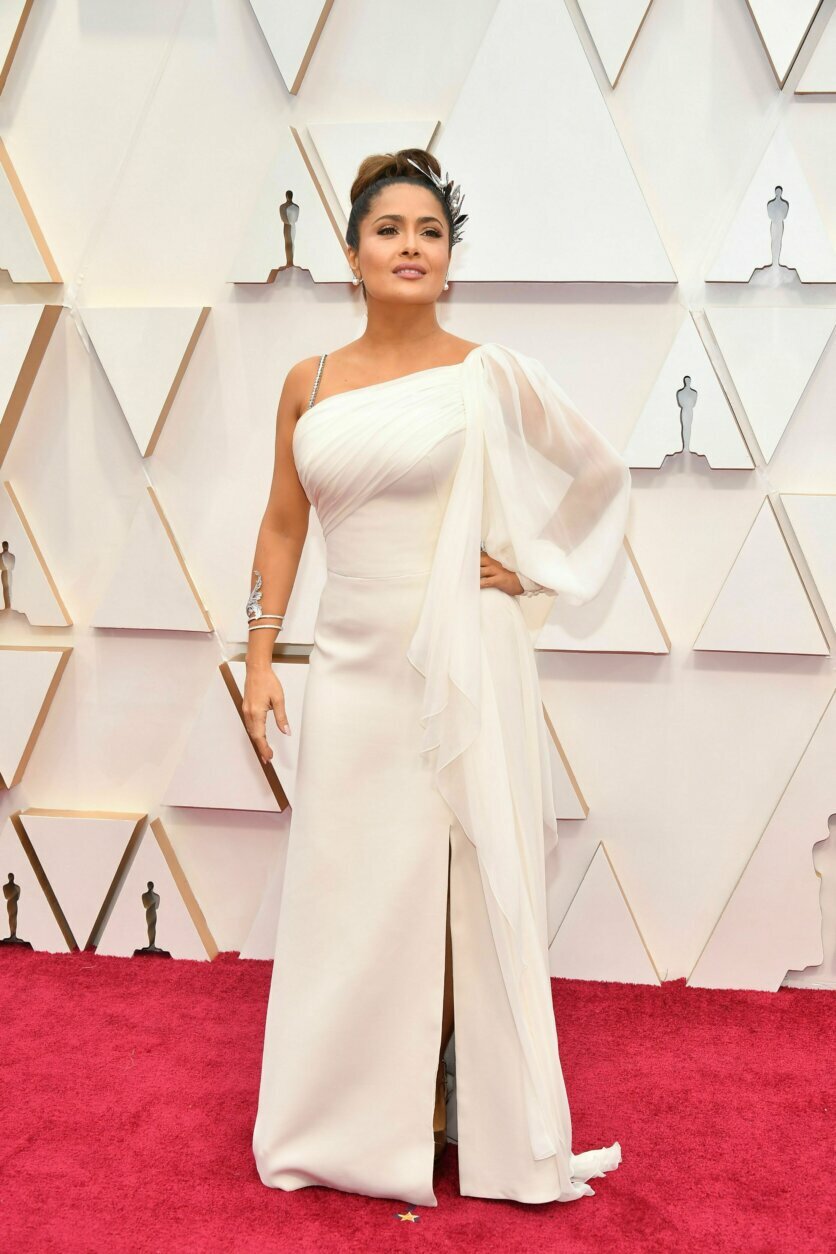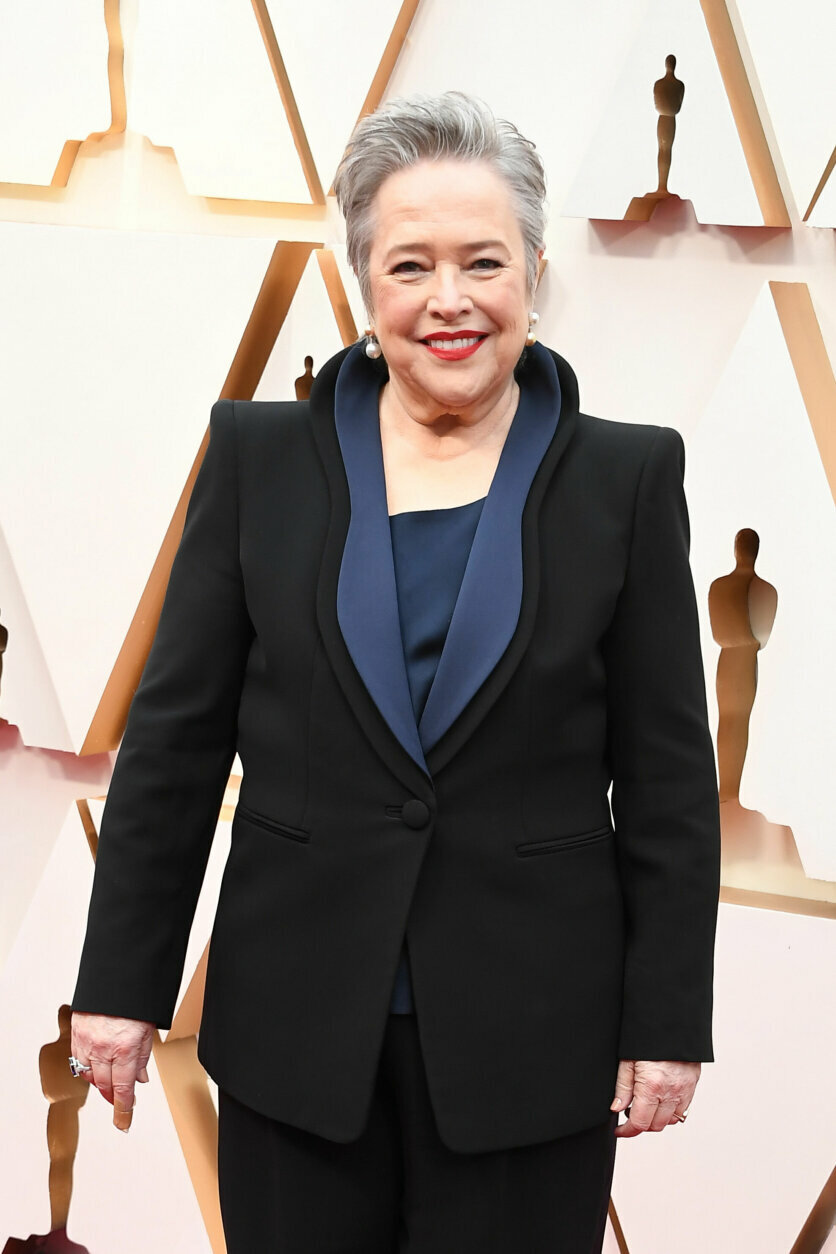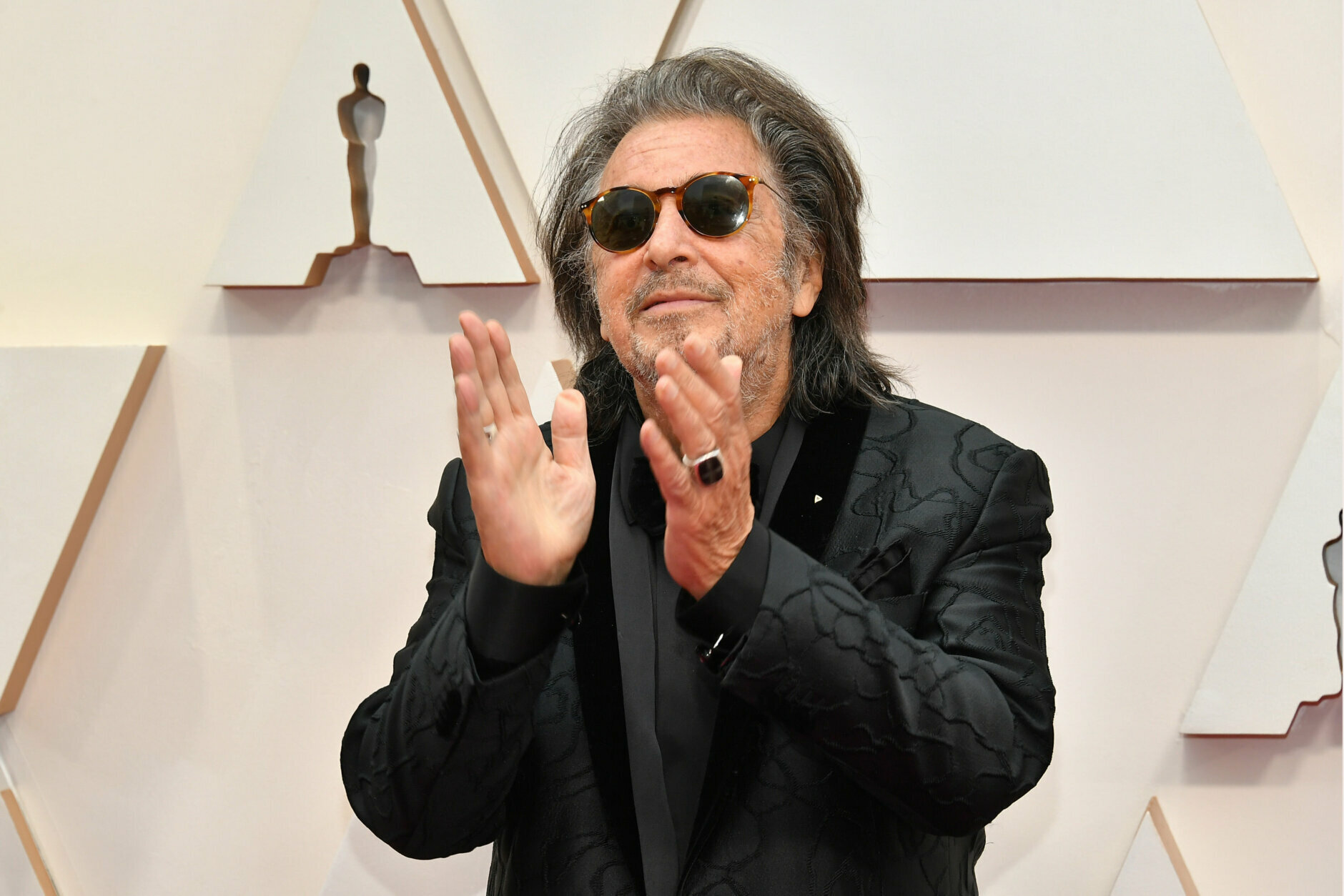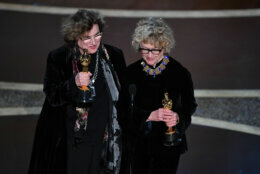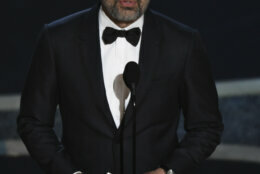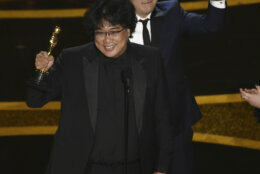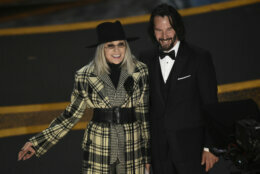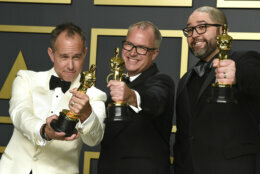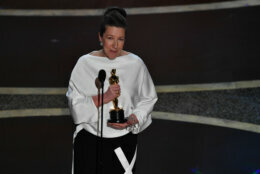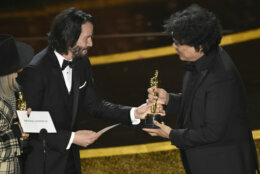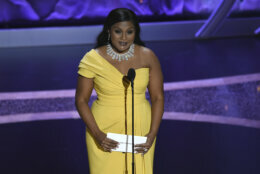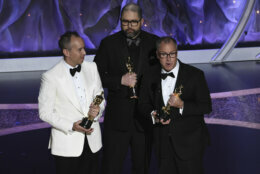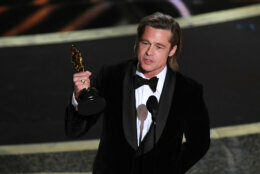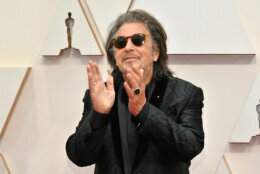A historic roar erupted Sunday night at the 92nd annual Academy Awards in Los Angeles as a century of international filmmakers finally breathed a sigh of relief.
South Korean master Bong Joon-ho did what the Bergmans, Fellinis and Truffauts couldn’t, as the thriller “Parasite” became the first foreign-language film ever to win Best Picture, upsetting “1917,” “Ford v. Ferrari,” “The Irishman,” “Joker,” “Jojo Rabbit,” “Little Women,” “Marriage Story” and “Once Upon a Time in Hollywood.”
It was a watershed moment for The Academy, which has traditionally favored English flicks. Michel Hazanavicius’ Best Picture “The Artist” (2011) was technically a French production, but it was a silent film with no language, while Bernardo Bertolucci’s Best Picture “The Last Emperor” (1987) was mostly English despite some Mandarin.
“This is the very first Oscar to South Korea,” Joon-ho said. “I will drink until next morning!”
“Parasite” won four Oscars total, including Best International Feature, Best Original Screenplay and Best Director, as Joon-ho upset Sam Mendes (“1917”), Martin Scorsese (“The Irishman”), Todd Phillips (“Joker”) and Quentin Tarantino (“Once Upon a Time in Hollywood”).
Many thought the directing prize would go to Golden Globe champ Mendes for filming “1917” to appear as an immersive single-take, an approach that paid dividends for Alejandro G. Inarritu in “Birdman” (2014). While the trick won an Oscar for “1917” cinematographer Roger Deakins, it wasn’t enough to topple “Parasite,” which kept us guessing every step of the way in a timely social commentary on class divides.
As expected, Joaquin Phoenix won Best Actor for his creepy yet heartbreaking performance in “Joker,” defeating Adam Driver (“Marriage Story”), Antonio Banderas (“Pain & Glory”), Jonathan Pryce (“The Two Popes”) and Leonardo DiCaprio (“Once Upon a Time in Hollywood”).
The win marked Phoenix’s first Oscar after three prior nominations for “Gladiator” (2000), “Walk the Line” (2005) and “The Master” (2012), not to mention “Her” (2013). It also makes him the second actor to win in the Joker role after Heath Ledger’s posthumous win for “The Dark Knight” (2008).
“When he was 17, my brother wrote this lyric: ‘Run to the rescue with love and peace will follow,'” Phoenix said, dedicating his award to late brother River Phoenix.
Also expected, Renée Zellweger won Best Actress for her role as an aging Judy Garland in “Judy,” defeating Charlize Theron (“Bombshell”), Cynthia Erivo (“Harriet”), Saoirse Ronan (“Little Women”) and Scarlett Johansson (“Marriage Story”).
The win completes a fairytale comeback story for Zellweger 16 years after her Supporting Actress win for “Cold Mountain” (2003).
“This past year of conversations celebrating Judy Garland across genders, across generations and across cultures has been a really cool reminder that our heroes unite us,” Zellweger said.
Brad Pitt won Best Supporting Actor for his role as a Hollywood stuntman in “Once Upon a Time in Hollywood,” defeating a crop of living legends in Anthony Hopkins (“The Two Popes”), Al Pacino (“The Irishman”), Joe Pesci (“The Irishman”) and Tom Hanks (“A Beautiful Day in the Neighborhood”).
While Pitt had previously won for producing “12 Years a Slave” (2013), he had never won for acting despite a career of “Thelma & Louise” (1991), “Se7en” (1995), “Fight Club” (1999), “Ocean’s Eleven” (2001), “The Curious Case of Benjamin Button” (2008), “Inglourious Basterds” (2009), “Moneyball” (2011) and “The Tree of Life” (2011).
“I’m not one to look back, but this has made me do so,” Pitt said. “I think of my folks taking me to the drive-in to see ‘Butch & Sundance,’ loading up my car and moving out here, Geena [Davis] and Ridley [Scott] giving me my first shot [in ‘Thelma & Louise’], to all the wonderful people I’ve met along the way. ‘Once Upon a Time in Hollywood,’ ain’t that the truth.”
Laura Dern won Best Supporting Actress as the divorce lawyer in “Marriage Story,” defeating Florence Pugh (“Little Women”), Kathy Bates (“Richard Jewell”), Margot Robbie (“Bombshell”) and Scarlett Johansson (“Jojo Rabbit”).
The win marks her long overdue first win after a prolific career of “Blue Velvet” (1986), “Jurassic Park” (1993) and “Big Little Lies” (2017). Her father, Bruce Dern, never won despite two nominations, while her mother, Diane Ladd, never won despite three nominations.
“Some say never meet your heroes, but I say, if you’re really blessed, you get them as your parents,” Dern said. “I share this with my acting heroes, my legends, Diane Ladd and Bruce Dern. … This is the best birthday present ever!”
As for screenwriting, Best Original Screenplay went to the aforementioned “Parasite,” defeating Noah Baumbach (“Marriage Story”), Rian Johnson (“Knives Out”), Sam Mendes and Krysty Wilson-Cairns (“1917”), and Quentin Tarantino (“Once Upon a Time in Hollywood”).
Best Adapted Screenplay went to Taika Waititi’s “Jojo Rabbit,” defeating Greta Gerwig (“Little Women”), Steve Zaillian (“The Irishman”), Anthony McCarten (“The Two Popes”), and Todd Phillips and Scott Silver (“Joker”). The New Zealand native dedicated his win to other dreamers around the world.
“I dedicate this to all the indigenous kids in the world who want to do art and dance and write stories,” Waititi said. “We are the original storytellers and we can make it here, as well.”
Hildur Guðnadóttir won Best Original Score for “Joker,” while Elton John and Bernie Taupin won Best Original Song for “(I’m Gonna) Love Me Again” from “Rocketman.” Sir Elton had previously won for “The Lion King,” but it was the first win for his longtime songwriting partner Taupin.
“Ford v. Ferrari” dominated the technical categories with Best Film Editing and Best Sound Editing. “1917” won Best Cinematography, Best Sound Mixing and Best Visual Effects. “Little Women” won Best Costume Design, “Bombshell” won Best Hair & Makeup, and “Once Upon a Time in Hollywood” won Best Production Design for its recreation of 1960s Hollywood.
“Toy Story 4” won Best Animated Film, just like “Toy Story 3” (2010). The beloved franchise probably would be four-for-four right now, but the category didn’t exist for “Toy Story” (1995) and “Toy Story 2” (1999) as it wasn’t invented until “Shrek” (2001).
“American Factory” won Best Documentary, following a Chinese billionaire who opens a factory in an abandoned General Motors plant, hiring 2,000 Americans.
Netflix’s “The Irishman” was the only Best Picture nominee not to win a single award, as voters either found the epic to be too long or voted against streaming content.
Instead, it was “Parasite” that left the biggest impact, becoming just the third Cannes’ Palme d’or champ to win Oscar’s Best Picture after “The Lost Weekend” (1945) and “Marty” (1955). It gloriously pulled off a feat that we rarely see on Oscar night — the best film actually won.
Jason ranked “Parasite” his No. 1 movie of the year. Read his review here.





